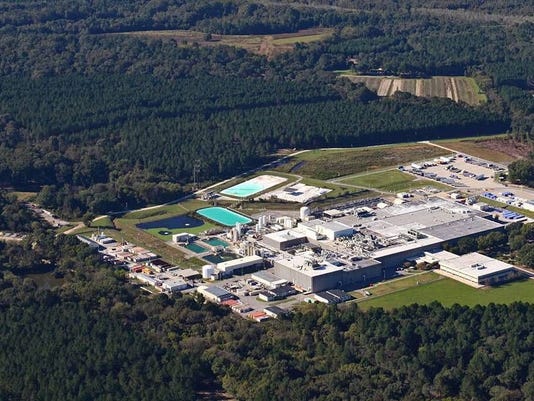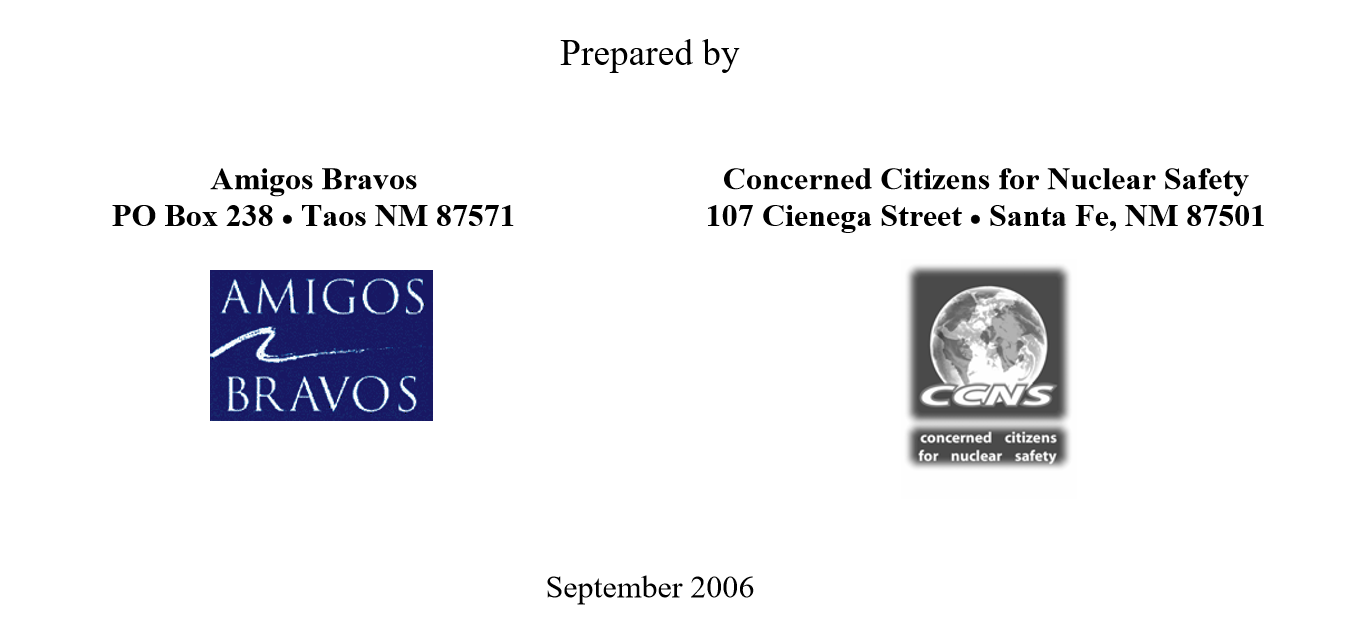2020
Nothing Found
It seems we can’t find what you’re looking for. Perhaps searching can help.
2019
Radioactive pollution leaked through floor of South Carolina nuclear fuel plant

(Photo: Courtesy of High Flyer/The State)
BY SAMMY FRETWELL | greenvilleonline.com
Radioactive uranium has leaked through the floor at Westinghouse’s Bluff Road fuel factory, contaminating the soil in an area of Richland County with a nearly 35-year history of groundwater pollution from the plant.
The U.S. Nuclear Regulatory Commission says the uranium, a toxic substance used to make nuclear fuel rods, seeped through a 3-inch hole in a concrete floor in part of the factory where an acid is used. The hole extends 6 feet into the ground, according to the NRC. The NRC learned of the leak July 12.
Are We Headed for Another Expensive Nuclear Arms Race? Could Be.
BY STEVEN ERLANGER | nytimes.com
BRUSSELS — After the recent death of the treaty covering intermediate-range missiles, a new arms race appears to be taking shape, drawing in more players, more money and more weapons at a time of increased global instability and anxiety about nuclear proliferation.
The arms control architecture of the Cold War, involving tens of thousands of nuclear weapons, was laboriously designed over years of hard-fought negotiations between two superpowers — the United States and the Soviet Union. The elaborate treaties helped keep the world from nuclear annihilation.
Pakistan downgrades diplomatic ties, suspends trade with India over Kashmir
Kashmir in lockdown as India plans to change state’s status
BY JESSIE YEUNG & SOPHIA SAIFI | cnn.com
Islamabad, Pakistan (CNN) Pakistan has announced it will downgrade diplomatic relations and suspend bilateral trade with India after New Delhi stripped the disputed state of Jammu and Kashmir of its special status. India’s High Commissioner will also be removed from the country, Pakistan’s Ministry of Foreign Affairs said in a statement Wednesday. It added that Islamabad will not send its own ambassador to New Delhi.
The series of announcements came after a National Security Committee meeting on Wednesday, where the office of Pakistan’s Prime Minister Imran Khan said that Islamabad would also review bilateral agreements with India and take the issue up with the United Nations and the UN Security Council.
TPNW is now officially halfway towards entry into force!
On August 6th, 1945 at 8:16 am, a nuclear bomb was dropped on the city of Hiroshima, killing over 140,000 people and wiping out most of the city. 74 years later, the bomb’s catastrophic consequences are still affecting people’s lives.
Bolivia’s ratification on Hiroshima Day brings ICAN’s Nuclear Ban Treaty halfway to entry into force.Today, tens of thousands of people have gathered in Hiroshima, and around the world, to commemorate the victims and echo the call of the Hibakusha – the survivors of the bombings of Hiroshima and Nagasaki – that such a thing must never happen again. And at the UN in New York, one such commemoration took a very special form today: Bolivia has just marked Hiroshima Day by depositing its ratification instrument for the UN Treaty on the Prohibition of Nuclear Weapons (TPNW). With this ratification, TPNW is now officially halfway towards entry into force!
Read more about this special moment
The Human Cost of the Hiroshima Bombing
PODCAST: Listen to the story of Kathleen Burkinshaw, the daughter of a survivor of the Hiroshima bombing. Kathleen reminds us that she and her mother are among the tens of thousands of people who view nuclear weapons in terms of the friends and family members they lost.
? New Podcast Alert ?: in memory of the 74th anniversary of the bombing of Hiroshima, Nukes of Hazard podcast host @NuclearWilson sat down with @klburkinshaw1, daughter of a #Hiroshima survivor, to discuss the human cost of the bombing. Listen here: https://t.co/iNs05KkbXc pic.twitter.com/YHm6py7Fnr
— Nukes of Hazard (@nukes_of_hazard) August 6, 2019
“For this week’s Press the Button, we mark the 74th anniversary of the Hiroshima bombing with a special edition episode.”
Listen and subscribe to Press the Button, a weekly podcast from Ploughshares Fund dedicated to nuclear policy and national security.
August 6th — Two interrelated issues are discussed: Should US policy today still reserve the right to use nuclear weapons first, and what happened when we did go first nearly three quarters of a century ago?
“To help answer these questions, we bring you the very best from a multitude of our earlier interviews. You’ll hear from nuclear historian Alex Wellerstein, former Obama deputy national security advisor Ben Rhodes, former RAND analyst and releaser of the Pentagon Papers Daniel Ellsberg, founding director of the Consortium on Gender, Security and Human Rights Carol Cohn, and Beatrice Fihn, executive director of the Nobel Peace Prize-winning International Campaign to Abolish Nuclear Weapons (ICAN).
Also featuring special guest Kingston Reif from the Arms Control Association, to discuss recent nuclear news on the Early Warning segment. Kingston talks about the INF Treaty withdrawal, no-first-use, and the latest from Iran..
Listen, Subscribe and Share on iTunes · Spotify · SoundCloud · Google Play
Also available on ploughshares.org/pressthebutton
The Democratic Debates Need More Questions About Nuclear War
There is a remarkable incongruity between the existential danger of nuclear war and the absence of public discussion about preventing it. This disconnect is all too apparent today, as arms control and disarmament treaties are scrapped, nations embark on vast nuclear weapons buildups, and governments threaten nuclear war against one another.
Democratic presidential candidate Sen. Cory Booker speaks while Sen. Michael Bennet, Sen. Kirsten Gillibrand, former housing secretary Julian Castro, former Vice President Joe Biden, Sen. Kamala Harris, former tech executive Andrew Yang, Rep. Tulsi Gabbard, Washington Gov. Jay Inslee, and New York City Mayor Bill De Blasio listen during Democratic Presidential Debate at the Fox Theatre July 31, 2019, in Detroit, Michigan.SCOTT OLSON / GETTY IMAGES
BY LAWRENCE WITTNER |truthout.org
Meanwhile, the mass media routinely avoids these issues but, instead, focuses on movie stars, athletes, and President Donald Trump’s latest tweeted insults.
Do I exaggerate? Consider the following.
In May 2018, the Trump administration unilaterally withdrew from the laboriously constructed Iran nuclear agreement that had closed off the possibility of that nation developing nuclear weapons. The U.S. pullout was followed by the imposition of heavy U.S. economic sanctions on Iran, as well as by thinly veiled threats by Trump to use nuclear weapons to destroy that country. Irate at these moves, the Iranian government recently retaliated by exceeding the limits set by the shattered agreement on its uranium stockpile and uranium enrichment.
“Today, watching as the edifice of [nuclear weapons] strategic stability slowly but surely collapses, Washington and Moscow are acting as if time is on their side. It is not.”
The Return of Doomsday
Vladimir Putin and his Defense Minister Sergei Shoigu stand by Chinese Defense Minister Wei Fenghe during a military parade, 2018.Sputnik / Alexei Nikolsky / Kremlin via Reuters
The New Nuclear Arms Race—and How Washington and Moscow Can Stop It
2018
Nothing Found
It seems we can’t find what you’re looking for. Perhaps searching can help.
2017
Nothing Found
It seems we can’t find what you’re looking for. Perhaps searching can help.
2016
Nothing Found
It seems we can’t find what you’re looking for. Perhaps searching can help.
2015
Nothing Found
It seems we can’t find what you’re looking for. Perhaps searching can help.

 PDF
PDF